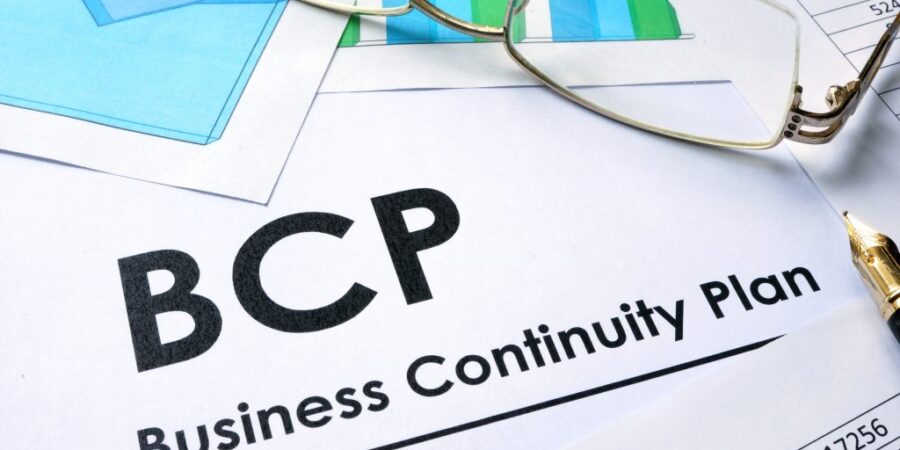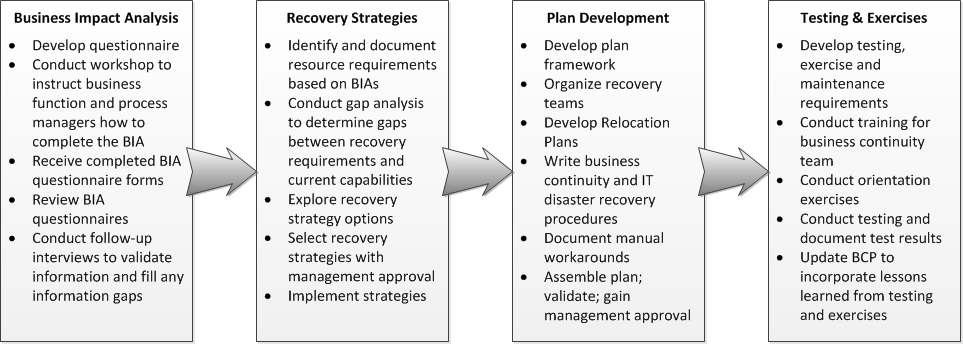Why You Need a Reliable Business Continuity Plan And Why Should You Have One? Calamity can strike at any time, whether it’s in the shape of an economic downturn, a natural disaster, or any number of other reasons that can disrupt your operations.
You must be ready for whatever situation arises to ensure that you can continue to operate. You’ll learn why business continuity planning is vital and how it can help your company stay afloat during a crisis in this book.
What is a business continuity plan?
A business continuity plan is a plan of action for your organization during times of disaster. It refers to your ability to maintain business functions or a quick resumption of operations following a crisis or disruption. It will outline all of the steps and procedures that you must follow in the event of such disastrous events.
A business continuity plan must include all aspects of your business operation, such as the performance of basic business processes, risk management processes, budget allocation, and the implementation of certain technologies.
Understand Your Unique Risks
Those potential threats can vary depending on the industry and the geographic region in which your business operates. Therefore, each business must look thoroughly at the risks that are unique to its operations and devise a plan to ensure that they can continue those operations if and when those risks become issues.
The business continuity plan covers everything from business process to assets, human resources to business partners— and anything related to running the business in the face of an event that threatens to stop operations.
Why Do I Need a Business Continuity Plan?
The importance of a business continuity plan should be self-evident. But some business owners might be over-tasked to the point that the entirety of their energies are exhausted at merely running operations and ensuring solvency. The problem with such thinking is that it’s reactive. You’re never in a position to profit from good business and grow your company because you’re always chasing fires and putting them out.
Remaining competitive is key for business success, and to lose operational capacity due to an act of nature, removes you from the marketplace, either temporarily or forever. It’s not a risk that can be ignored, which is why there is a strong need to create a plan of action.
It’s like having the fire extinguisher behind glass, only to be broken in case of an emergency. You set it up once, then don’t have to think about it until you do, in which case you’ll sure be glad you installed that fire extinguisher.
How to Create a Reliable Business Continuity Plan
When working on a business continuity plan there are several steps that must be taken to ensure that it’s reliable. They are outlined below.
Analyze Organizational Threats
You can’t prepare for what you don’t know. There will always be aspects of potential risks that are beyond your ken, but that’s why they’re called risks. Therefore, do the due diligence. Make a comprehensive list of what threats are likely to impact your business. Then dig deeper into each to see how it would impact your operations.
By analyzing your organizational threats, you’ll have an idea of what you need to do in order to respond. Consider using a risk register template to keep track of each risk.
List Primary Tasks to Stay Operational
Once you know what might happen, then you have to devise a strategy to respond so that the business can keep its doors open. That means prioritizing your list to include only top-level items that will address the livelihood of the business.
Other points on your list are important, of course, but you can’t do everything, especially in an emergency. Therefore, pick what must be done and do the rest once the dust has settled.
Safeguard Contacts
What if your facility is damaged or worse? What if your IT is compromised? What if you lose contact information for executives and managers who are crucial to the smooth operation of the business? That’s why the need to have a list of management and their contacts in a safe, or preferably multiple places, so they’re easily accessible.
In case of an emergency, you need to reach the important people in your organization immediately. There’s no time to search for this information; it needs to always be at your fingertips.
Direct Personnel
Depending on the situation, there might not be anyone in a position of authority to explain what personnel should do and where they should go. This is a recipe for chaos, which only adds one more problem on top of an already problematic situation.
That’s why it’s important to have a plan for where personnel need to be when and if a disaster happens. You want to keep them out of harm’s way and place them in position to carry on with operations, if that is a possibility.
Backup Data
This goes without saying, and should be second nature by now, but still bears repeating. Information is one of the most important assets for many businesses, and it must be protected from a potential breach or compromise of IT.
That data must be backed up in more than one place, as well. There should be backups on site but also off-site in case there is a localized catastrophic event. An online project management software can offer you cloud storage for your data, creating an additional safeguard.
Collaborate Across the Organization
Businesses are collections of many different departments, and the coordination of these elements is critical to getting operations either up and running again or running as during normal conditions.
Therefore, a collaboration plan that includes all facets of the business must be in place to make sure these different departments are in communication and working together, and not against one another, in service to the goal of staying operational.
Get Buy-In on Your BCP
For any business continuity plan to work and be functional, it must be distributed to everyone in the business, so they know what their part in the process is. But even more than that, every person, from the top to the bottom of the business, must buy into the plan.
Anyone who doesn’t buy into your business continuity plan is a weak link that will break the chain you created to protect the business during this challenging period.
Creating a business continuity plan is like creating any plan. You need to have the tools to plan one, share it and then track it to make sure it’s progressing as planned. That requires a robust project management software with the scheduling features you need to facilitate the process. ProjectManager.com is a cloud-based project management tool that lets you manage and control even major changes to keep your business operational.











Leave a Reply